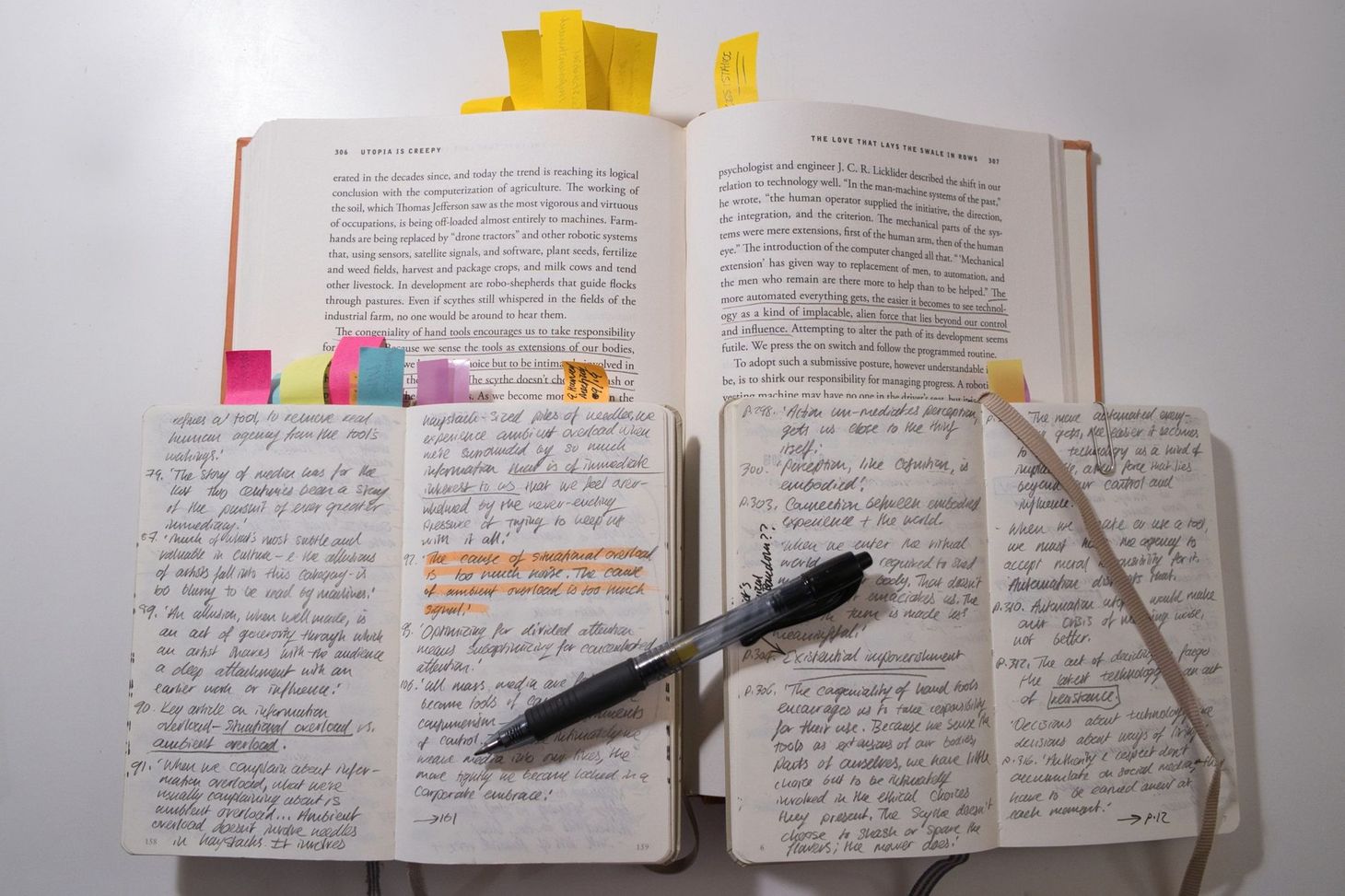In praise of active reading

Active reading is the act of annotating, highlighting and making notes on a book as you read it. As a writer, here’s why it’s one of the most vital tools in my toolbox.
Like most people, I first discovered active reading at school. It was Year 9, I think, when I was given a copy of Macbeth and encouraged to write and scribble in it as much as I liked. Until then I’d been brought up to view books as sacred objects, so this was a revelation, and I discovered the joy and power of marginalia during that school term. It was a significant upgrade in the way I learned from books.
Active reading doesn’t have to involve leaving your mark on the pages, of course. Whenever you make notes or transcribe passages as you are reading, you are reading in an active way, making connections between what you read and the knowledge already in your head. But the freedom to underline and scribble on the page itself adds another dimension to the process. Not only is it a richer, more dynamic form of note-taking, you’re also leaving a trail of breadcrumbs that may assist a future reader – whether that’s you in the future or someone else entirely, perhaps years or decades after your death.
Beyond an academic context, I’ve used active reading techniques for most of the books I’ve read over the last ten years or so. Sometimes I’ll just jot down a few notes and a couple of quotes, but more often my notes will be extensive, sometimes cross-referencing other books I’ve studied. After I’ve finished, I’ll then transcribe everything into my commonplace book in a more organised format, which keeps all this stuff in one place and helps me to make connections – sometimes, surprising ones. For example, I recently finished reading Utopia is Creepy by Nicholas Carr, and thanks to my extensive notes I was able to make minor but significant (for my own work, anyway) insights into the connections it shares with Feral by George Monbiot, a book in a completely different genre. If you don’t make notes and highlights as you read, these ‘aha!’ moments don’t come anywhere near as easily in my experience.
In order to be a good writer you must read – broadly, often, and deeply. Active reading helps you get more out of what you read. I’m not saying that you must produce piles of notes every time you read a novel for pleasure, but at the very least noting down those truly excellent quotes and nuggets of wisdom will start to build a web of connections in your head, and that’s a valuable thing.
Active reading doesn’t have to be an analogue activity. The Kindle platform has excellent tools built in for highlighting and annotating text, and I’ve studied quite a few books by having the Kindle app open in one window and a text file for notes in another. Most computers and tablets come with built-in apps for annotating PDF documents. If you’re an iPad user, it’s worth looking at the app Liquid Text, one of the best software-based environments for active reading I’ve tried.
Ultimately, though, all you really need is a pad of paper, a pencil, the desire to learn, and a willingness to make marks on the pages of the book you’re reading.
Alex Roddie Newsletter
Subscribe here to receive my occasional personal newsletter in your inbox. (For the fun stuff, please consider subscribing to Alpenglow Journal instead!)



